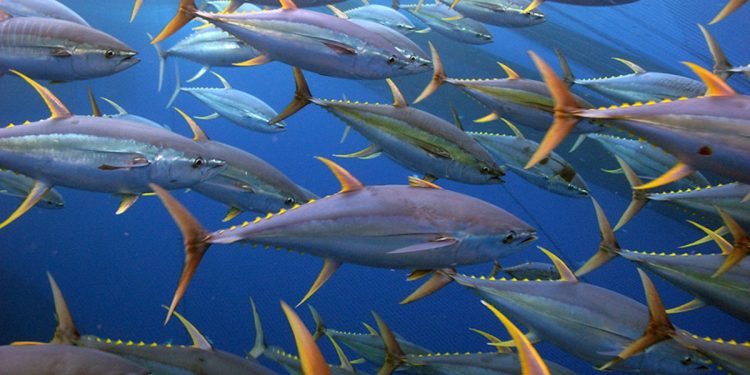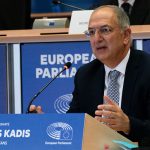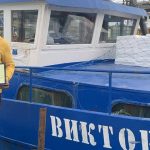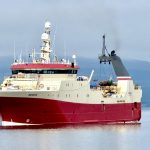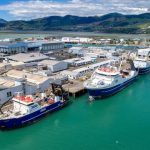Organisations at the centre of Indonesia’s sustainable fishing movement announced the official launch of the One-by-One Indonesia Tuna Alliance at Seafood Expo Global in Brussels last week.
The Alliance brings together the strengths of three organisations – the International Pole & Line Foundation (IPNLF), Yayasan Masyarakat dan Perikanan Indonesia (MDPI), and the Indonesian Pole and Line & Handline Fisheries Association (AP2HI) – to promote Legal, Reported and Regulated (LRR) fishing, and improve sustainable practices and transparency in one-by-one seafood supply chains in Indonesia.
Seen as the world’s largest producer of tuna, Indonesia has the most abundant tuna fisheries in the world. However, IUU fishing has caused losses to the country that are estimated to be as high as US$3 billion annually. Over the past four years, the government of Indonesia has worked to reshape the fishery sector, aiming to harness the country’s potential as a leading maritime and fishing nation.
The One-by-One Indonesia Tuna Alliance, with support from the United States Agency for International Development Oceans and Fisheries Partnership (USAID Oceans) intends to build on the momentum created by the government fishery reform to support, develop and promote Indonesian pole-and-line, troll and handline (one-by-one) tuna fisheries and communities.
According to MDPI executive director Saut Tampubolon, the Alliance is a good opportunity to embrace all stakeholders to work together on achieving responsible and sustainable fisheries.
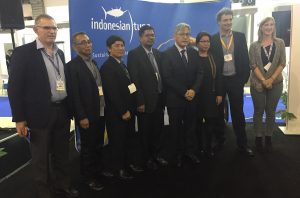
‘This announcement at the world’s largest seafood show underscores our commitment to harmonise our efforts and to provide a unified voice that improves opportunities for coastal one-by-one fishers – before industry, Government and NGO partners. Support of all parties is absolutely needed to achieve the Alliance’s goal, which is sustainable fisheries. I personally look forward to working together with our partners now and in the future,’ he said.
Alliance members have been working together in Indonesia over the past five years, leading the transition of tuna fisheries in Indonesia towards more sustainable practices. The consolidation of the efforts of these organisations through the Alliance marks a distinct opportunity to further sustainability within Indonesia’s tuna sector.
The Alliance aims immediately to focus its efforts on the continued integration of technologies in support of strengthening the electronic catch documentation and traceability (eCDT) capabilities of Indonesia’s tuna value chains and the preparation of fisheries for Marine Stewardship Council (MSC) certification. In the long-term, the Alliance hopes to disseminate best practices in eCDT and sustainable fisheries management practices throughout the region.
‘Indonesian one-by-one tuna fisheries and supply chains are complex, varied and vast. By leveraging the combined strengths of all the Alliance members, we can continue to deliver the best improvements on the ground to support the fishers and fishing communities, and throughout the supply chains,’ said Jeremy Crawford, IPNLF’s Southeast Asia director .
‘I look forward to working even more closely with our partners and strengthening our impact to ensure one-by-one tuna fisheries are recognised and rewarded for their environmental stewardship.’
The reception co-hosted by the Indonesian Ministry of Marine Affairs and Fisheries, IPNLF, AP2HI, the Indonesia SMART-Fish Programme and the Swiss Import Promotion Programme, also saw the European launch of the new Indonesian Tuna brand that aims to increase the awareness and recognition of Indonesia’s sustainable tuna fisheries in global markets.
‘The launch of the Alliance happened at a very special event for AP2HI and our association Members. Collaboratively, we have also launched the Indonesian Tuna brand, and confirmed that the first group of AP2HI Member one-by-one tuna fisheries will enter full MSC assessment in July 2019. Working with the Alliance, we look forward to continuing to promote our members,’ said Muis Sulaiman, general manager of AP2HI.

